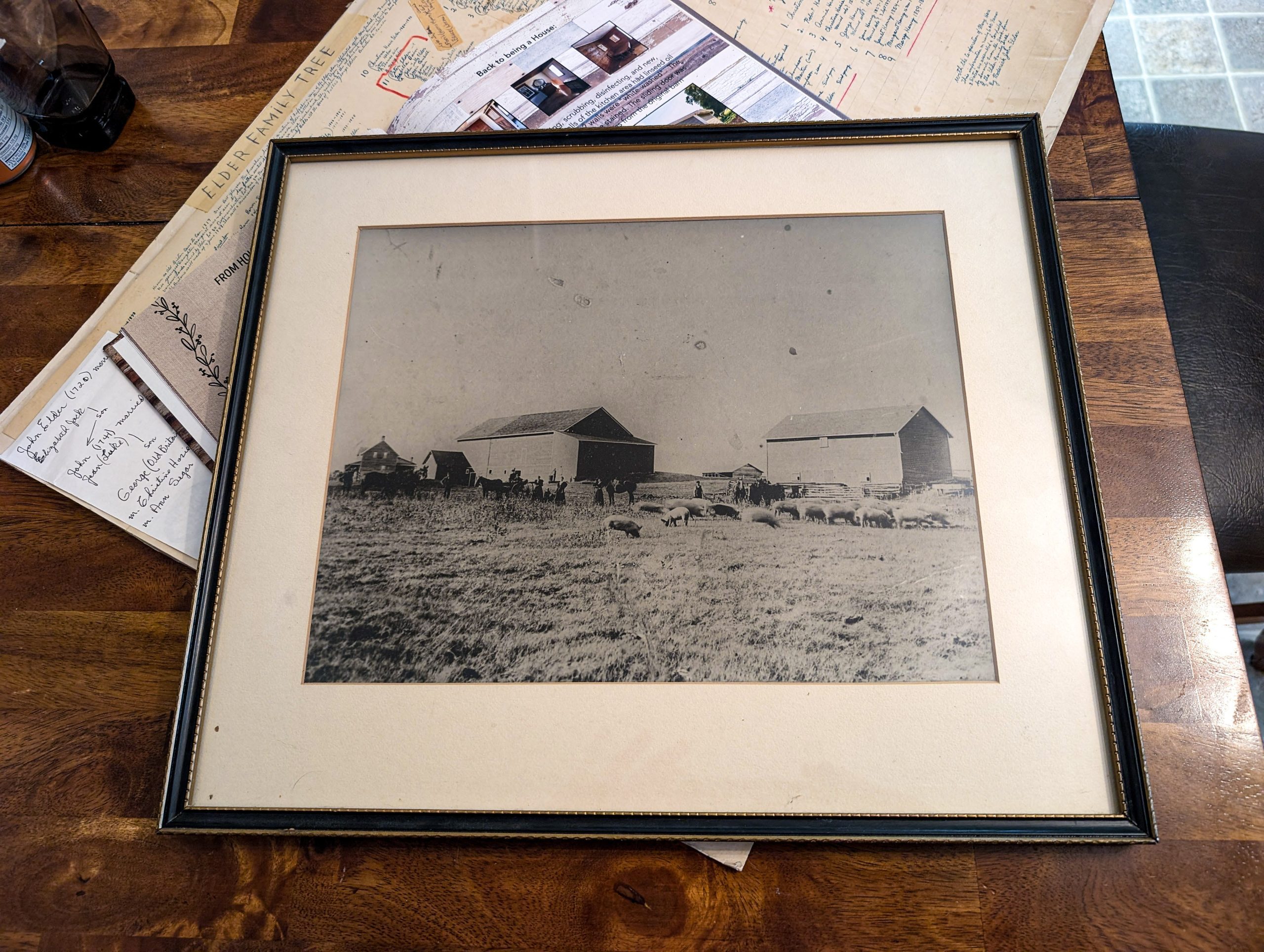Once considered among the most traditional, unchanging ways of life, farming today is being transformed. Farmland values are changing the nature of farming and farm business management, and introducing new opportunities and risks.
Plus, they are creating challenges for farm families. Land prices are raising new questions about how to direct assets to different siblings, and how to maintain and promote family harmony.
All of us must recognize this. Family is a big part of how surging farmland values are reshaping the agricultural sector.
Read Also

Why you should preserve your farm’s history
There was a big cast iron dinner bell in the middle of the farmyard where Maggie Van Camp grew up….
Impact on farm operations
As farmland values rise, farm practices are evolving and farmers are focused on maximizing their return on investment. More farmers are adopting precision agriculture techniques on more acres. They are leveraging technology to monitor and manage their crops, and they are investing in machinery to improve their efficiency.
These changes are driven by the need to generate higher revenue from the same acreage to justify the cost of land acquisition.
This shift towards more efficient farming methods is changing the demographics of who our successful farm owners and operators are. New practices and technologies require ever more learning and education as well as the ability to adapt and implement new practices.
This provides a great opportunity to integrate the next generation of Canadian farmers into our ownership and management teams today, and it is these farms — the farms that are leveraging the knowledge and skill sets of the next generation — that are beginning to set themselves apart from the competition.
Through my work in farm succession planning, I get exposure to farm families from a variety of agricultural sectors. Obviously, there are many differences between sectors but there are also many commonalities. Today one of the most common characteristics of successful farms — regardless of their specific sector — is they are all looking for and finding new ways of leveraging their existing land base to create new efficiencies.
Niche crops, processing plants, drying facilities and agri-tourism are prime examples of how to generate extra revenues without needing to expand the land base.
The impact on farm succession
It’s no surprise the soaring cost of farmland can be prohibitive for new farmers looking to enter the industry.
With farm values presenting a strong barrier to entry, farm succession planning becomes even more integral to the success of our farms. Without it, there is little opportunity for young farmers to establish a new farming operation of their own.
Involving the next generation in our farm planning allows them to see a path towards future ownership. It keeps them motivated; they can see hope in their quest for farm ownership, whether it be five, 10 or even 20 years in the future.
Historically, in our work as farm succession planners, farmers were focused on either an immediate transition of ownership or at least on a shift in farm ownership over a short period. Now we are seeing a change in priority with more young farmers seeking a path towards eventual ownership over a longer timeline to make transition more financially feasible for both the farm and the family.
Starting succession planning early can motivate the next generation to remain on the farm, plan for the financial stability of the exiting generation, and ensure the financial viability of the existing farming operation.
The impact on family harmony
Aside from the obvious challenges that come with rising land values, such as affordability, scarcity of available land and external selling pressures, one key area is often overlooked — family harmony.
For families with multiple siblings, and specifically for those where some of the siblings are not interested in farming, rising farmland values can complicate estate planning and equalization.
The challenge lies in ensuring that all children receive a “fair” share of their parents’ assets, which may — or may not — include valuable farmland.
This is where the important conversation about the difference between “fair” and “equal” needs to be addressed with our children. Balancing the interests of both farming and non-farming heirs can be emotionally charged and legally complex.
In previous generations it was common to divide the land equally among the children through the parents’ estates, and it was normal to see farming children buy a share of land off their siblings to remain in control of farming assets.
Although this is still an option for providing a more balanced estate for our children, it is no longer financially feasible for most farming operations and places unfair strain on the farming successors that can jeopardize the viability of the farming business.
The cost of sibling buyouts is simply too high, as is the pressure this places on the farm’s resources and also on the relationships between family members.
Open and transparent communication is paramount in addressing equalization challenges. Families should engage in honest discussions about their intentions and expectations regarding the farm’s future, and it makes sense to consider the use of a facilitator or succession planner in this process. They can make a real difference in providing a safe environment to host these necessary discussions, both for the oncoming generation and for the parents.
Creating a clear succession plan, including provisions for non-farming heirs, can help maintain family harmony.
Including the non-farming heirs as part of the planning process allows for clear communication and it helps them understand the how, the why and the when of equalization and what it may look like for them.
From the other side, allowing non-farming kids to have a voice in this process means that others in the family will have a better understanding of how the farm and its resources can best create opportunity for everyone.
It remains true, however, that this approach often requires delicate conversations to navigate the complexities of equalization and estate planning, and families should consider consulting legal and financial professionals who specialize in agricultural succession. These experts can help facilitate conversations and develop tailored solutions that meet the family’s specific needs and objectives.
Impact of external pressures
Farmers facing external sale pressure due to the high value of land are confronted with a complex decision-making process. Offers from developers, corporate entities, investors or larger farming operations can be financially enticing, providing an opportunity to cash in on the appreciated land value.
However, selling the land often means relinquishing a piece of family heritage and the agricultural traditions that have defined generations. Additionally, it can lead to the loss of valuable agricultural resources, further raising concerns about food security and the sustainability of the agricultural sector.
The allure of a substantial windfall must be weighed against the long-term implications for the farming family, the local community and the broader agricultural landscape.
To help combat the mounting external pressures to sell the farm, it is essential for farm families to establish and uphold legally binding agreements. These agreements can serve as a shield against the temptation of lucrative offers, safeguarding the family’s commitment to farming and preserving their agricultural legacy.
Key components may include pre-emptive rights, which allow family members to match any external offer, and restrictions on land use to maintain the agricultural integrity of the property. Such agreements provide clarity about the family’s intentions, helping to resist external pressures, and they ensure the farm remains a thriving, sustainable and familial institution for generations to come.
These agreements can foster a sense of security among family members. By having clear agreements, we can reduce potential conflicts and preserve the family harmony in the face of external sales pressure.
In conclusion, the transformation of farming due to rising farmland values is creating both opportunities and challenges for today’s farmers. While it offers the potential for increased profitability and diversification, it also poses financial barriers and equalization difficulties for farming families. The key to maintaining family harmony and securing a sustainable future for agriculture lies in open communication, fairness and a willingness to adapt to changing circumstances.
For farm families, a key takeaway from this discussion is that it is important not to undervalue the importance of starting your farm’s succession planning journey early. Starting early will not only provide more flexibility for potential solutions, but also ensure the next generation of farmers can see how they fit into the long-term vision for the farm.
By seeking professional guidance and embracing innovation while preserving traditional values, farming families can navigate the evolving landscape of agriculture and ensure their legacy endures for generations to come.
Andrew Leach is advisor at Farm Life Financial and works with farm families on succession and estate planning and on next-gen leadership development. He can be reached at farmlifefinancial.ca or by emailing [email protected]
– This article was originally published in the November 2023 issue of Country Guide.














